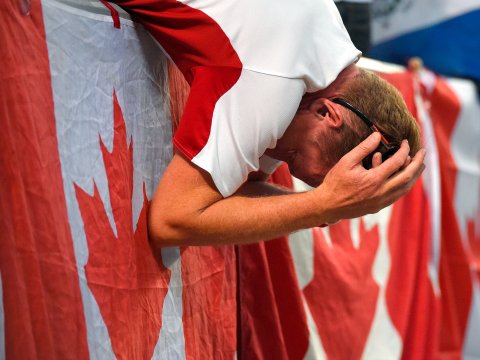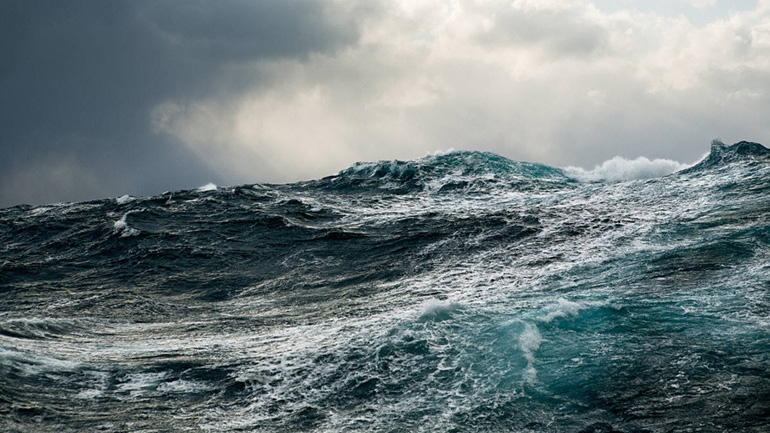A mini-movement in Canada links that huge but sparsely populated country from East (Halifax) to West (Vancouver). It’s entitled, “Is Hope Bullshit?” Since Canadians recently elected the “Sunny Ways” social media maven Justin Trudeau, I found the question ironic, and worth exploring.
 In Canada, people voted for hope and nostalgia; in America, people are voting for anger and nostalgia. Americans are angry with themselves and take it out on others; Canadians are angry with others and take it out on themselves.
In Canada, people voted for hope and nostalgia; in America, people are voting for anger and nostalgia. Americans are angry with themselves and take it out on others; Canadians are angry with others and take it out on themselves.
Given that there’s a 50/50 chance that a narcissistic demagogue will have his finger on thousands of nuclear weapons, I’ll take the Canadian version of denial any day.
How did we come to such a pass, with the Man from Reason sandwiched between the soft fascism of Bush-Cheney and the blatant fascism of an increasingly likely Trump (with Condi Rice?)?
The ‘hope and transformation’ presidential candidate turned out to be the reason and status quo president, who held the crumbling truths he was given to be self-evident.
If Trump is a historical fait accompli, Obama will be written off as a placeholder for despotism. Look for him to campaign for Hill-Bill in the fall as hard as he ever campaigned for himself. His legacy is at stake.
Two Canadian bi-coastal “Deep Democracy” (I kid you not) facilitators of the question “Is hope bullshit?” have also done their shtick in Oakland, California. The advertisement for the conference there read in part:
“Many of us are working tirelessly towards equity, justice, sustainability and resiliency. And yet the world can, at times, feel doomed. It seems we are too late to turn back the clock on climate change, or undo the extinction of species and cultures on the planet.”
In the last few days, people around the world have watched the explosive growth of a conflagration in Alberta. That’s the tar sands province, which produces the dirtiest oil on the planet. The fire has driven tens of thousands from their homes in some of the most harrowing scenes of escape since the 1991 Oakland fire. What goes around comes around?
Far too often the very people who deem the world hopeless have become inwardly dead themselves. They’re not wrong about this world, but the question is not about the world but about people. That’s you and I.
The world is the expression of the psyches of all of the people in it. So if we want to change the world we have to begin by changing our own psyches. That turns out to be a lot harder than people thought, so most quit.
In Vancouver, the hope dope seminar was framed by the facilitator this way: “I was noticing in a lot of my conversations, especially with young people, this sense of anxiety and depression about how unsolvable the problems of the world are and how heavy it is.”
“It’s almost like we have to make a choice between shutting down and turning off the news and going into isolation, and being open to it but feeling a lot of pain.”
That’s clear, and well put. But the conferences degenerated into platitudes, rather than elevated with insights. They conclude with: “The point is usually to just get a little adjustment to what it is that you’re already doing, a little change in attitude, or find a better way to say what I’ve been saying.”
Translation? ‘We don’t have to radically change…we’re on the right track, we just need some superficial attitudinal adjustments and changes in perspectives.’
Thus, the whole riveting question, “is hope bullshit?” remains untouched.
Social pressure still rules, even as society breaks down and the world goes to hell. As one of the participants said, “Hope is such a positive thing in society; nobody wants to appear non-hopeful.”
So let’s ask the question seriously, is hope bullshit? If we define hope as the desire for some outcome, or the wish for things to get better over time, the answer is unequivocally yes, hope is bullshit.
Not just because hope continually sets us up for disappointment and despair, but because true change does not happen by thinking and acting in terms of time.
You’ll notice how, if you are fully present, there is neither hope nor despair, just what is. It’s very difficult to remain with what is, but if that is one’s intent, it becomes one’s lodestar, and the light of insight continually banishes the darkness of despair.
Besides, if the choice is between numbness and pain, I’ll take pain, because at least then you still feel something.
Hope, like its source code time, is the toughest psychological and spiritual nut to crack. I still grapple with it every day, since I fall back into the deep habit of thought/time/hope.
But when time ends in undivided attention to thought and emotion, the flippin’ coin of hope and despair stops. And when it does, there is the light of insight.
Then one sees that hopelessness isn’t the absence of hope, but of love.
Martin LeFevre

